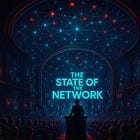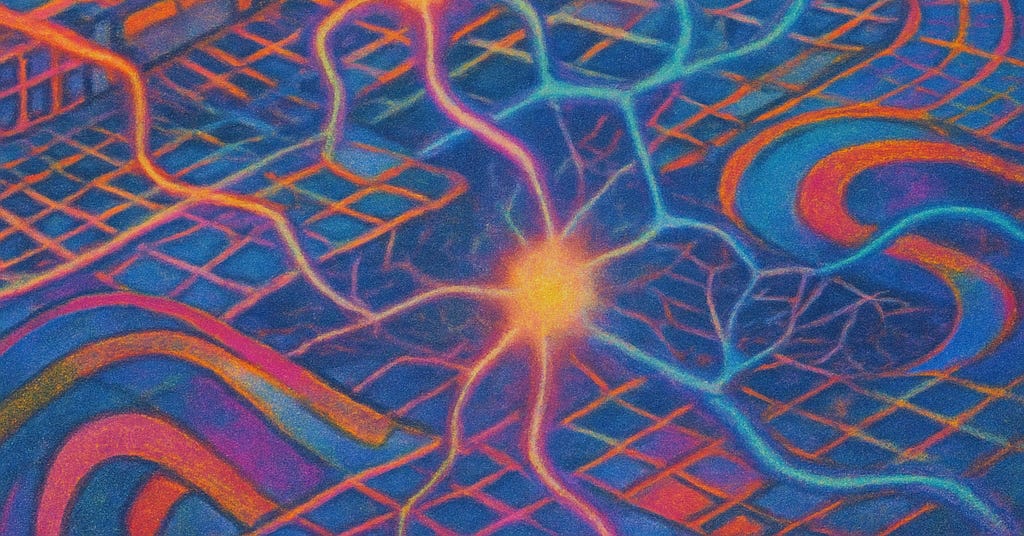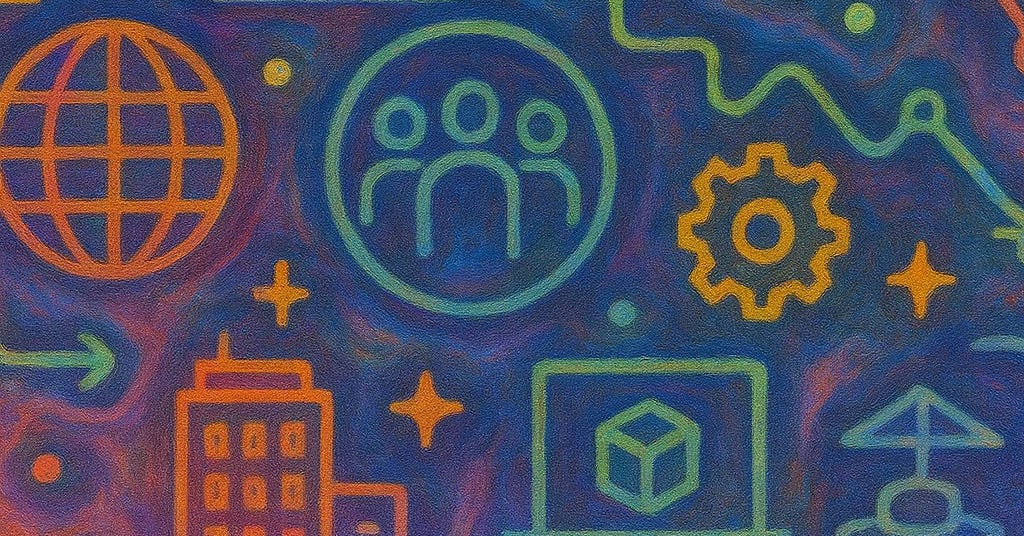Updates on Network State Experiments (mid-2025)
Some updates and amendments from the previous post, and projects I'm looking forward to from a mid-2025 vantage point
Previous post:
In the last post, we overviewed all existing network state projects from 2023-2025 which made a serious attempt at bridging from internet to land.
In this post, I am sharing:
1) A corrective addendum with some updates from the previous post
2) New projects that might be next on the horizon, things worth following
Addendums
Cabin: Cabin is winding down its DAO/“venture-style” operations and distributing the on-chain treasury to token holders; the community continues informally.
CityDAO: CityDAO has effectively wound down, with votes to return funds to citizens in CIP-212 and follow-up actions in CIP-216, with coverage summarizing refunds here. Existing NFT land owners are currently reporting there’s been no updates from the founder, nor any refunds initiated as of yet.
Kift (vanlife co-living): Little to no recent public activity; consider the project dormant for now. Their Discord server also seems to be fairly inactive since 2023-24.
Cohere: Seems largely inactive on Discord and X, seems inactive or shut down
Cocohub: Primarily a nomad events directory run off a simple site; minimal crypto-web3 infra behind it. The founder seems aligned with the network state vision. Note however there is a difference of direction; Balaji treats a network state as a digital-first sovereign startup that scales with metrics, capital, land, and eventual recognition. CoCoHub reframes the goals of a fluid, spiritual, and intentional network; one centered on trust, emergence, and regenerative living over tokens, roadmaps, or state power. Some builders might prefer the term network societies to reflect plural, non-state-based paths of evolution.
ColivingDAO (Malta): Originally an early DAO approach to co-living; founders paused on this direction and are exploring a revival. Their instagram and website haven’t been updated since 2022, though their facebook page posts occasional updates. They seem most active on their Telegram group.
Vitalia: Split into Infinita & Viva City: Vitalia dissolved as a brand. Niklas Anzinger now leads Infinita; Laurence Ion leads Viva City, positioning a longevity-focused Zu-hub with SEZ ambitions. September 2025, Infinita will be hosting Bio-Frontiers month, an exciting pop-up on longevity and biotech.
Zuzalu tech stack & cadence: The ecosystem continues building a modular “CommunityOS” (Zuzalu.city + related dApps) without a single “Zu-brand”. This allows for a deliberate, forkable, community-run setup. Recent townhalls suggest some slowdown for pop-ups, while the software/tooling layer matures.
Tamera / OASA / Traditional Dream Factory: Tamera is one well-known example among thousands of eco-friendly intentional communities worldwide. It has collaborated informally with Traditional Dream Factory (TDF). TDF, located near Abela, is the first on-the-ground project in the OASA network, governed by a DAO through the $TDF token and now rolling out its physical infrastructure roadmap. OASA, a Swiss association, supplies the legal wrappers, funding model, and shared governance standards for its member projects. Another honorable mention is closer.earth, a platform made by TDF for running and growing your community. Neither TDF, closer, nor OASA appeared in the previous blog, so they’re worth highlighting here.
Micronations: Liberland is one of the few that actually runs blockchain-based e-governance/e-residency, though technically there are dozens of other micronations around the world. The others were excluded as they seemed less explicitly aligned with the ideas of the network state.
Ciudad Morazán (Honduras): This site is actually a sister ZEDE to Próspera with a more constrained model. Note that it offers less operational freedom than Próspera, despite their geographic proximity.
Tools for the Commons: A new entry, TftC positions itself as a “digital economic zones” platform; actively working in Zanzibar with partners and teasing new offerings. They have many projects in the works, with one public example being Astra.
ThreeFold & Catawba Digital Economic Zone: There are press releases about a ThreeFold-backed “automated Digital SEZ” in Zanzibar, but ThreeFold (like Catawba Digital Economic Zone) are best categorized as digital infrastructure, not a charter/SEZ city.
Network School classification fix: Network School is a program/community operating inside Malaysia’s Forest City i.e., not an SEZ or charter city itself. It’s an education-driven community leveraging a host jurisdiction, while hoping to expand and build other nodes.
Embassy Network: Appears inactive publicly; the website hasn’t meaningfully changed in a long time.
*Special thanks to Eric Miki for providing feedback and updates for this section.
New Projects
• Network School Expansion: After some early success with the initial cohorts in Forest City, Balaji’s Network School is planned to scale outwards with a permanent base nearby the existing hub. Longer-term, the project is poised to expand globally to multiple sites. Rumors suggest future cohorts could take place in other underutilized developments in Asia or the Middle East. If Network School scales, it might essentially create education-driven network state enclaves in various locations – a fascinating hybrid of university and co-living startup. We’re likely to see a lot of updates to come as well out of the NS 2025 conference later this year. It’s a project to watch because it directly tackles talent cultivation and might produce many leaders for future network states. Social “Layer 2s” on top of NS are also becoming a thing, with ÂRC building a popup within NS, slated for Q3 2025.
• ZuVillages Going Permanent: Several Zuzalu‑inspired groups are moving from pop‑ups to permanent hubs. Notably, a 16‑floor San Francisco tower marketed as a ‘first permanent Zu‑hub,’ Switzerland’s Zuitzerland project plans to build a permanent Zuzalu node, and initiatives in Italy and Japan exploring permanent models. There’s no official announcement of a single, year‑round ‘ZuHub’ location yet, but ecosystem‑level backing like the Zuzalu/ECF Zu‑villages grant, suggests the movement is positioning for permanence, pending solutions to governance and membership that Vitalik highlighted in 2024.
• AlphaCity & Cross‑Border Zones (Africa): AlphaCity (CEO Bradford Cross) publicly positions itself as a builder of a federation of frontier cities in Africa; the team claims early agreements with several host countries, though independent confirmations aren’t yet public. Meanwhile, African governments are actively standing up tech hubs and SEZs, including Ghana–UAE’s $1B Innovation/AI Hub at Ningo‑Prampram (MoU signed, construction targeted for 2026–27), Kenya’s Konza Technopolis (a SEZ), and Rwanda’s Kigali Innovation City. Cross‑border zone models also exist (e.g., SKBo and Moyale initiatives). If AlphaCity lands a formal land/zone deal, the broader network‑state community already tracking projects like Itana and Afropolitan would likely pay attention, but this potential momentum remains contingent on a verified government agreement.
• Seasteading 2.0: While the big, government‑backed floating‑city build hasn’t visibly broken water yet (e.g., UN‑linked OCEANIX Busan remains in the prototype/design phase per UN‑Habitat), there were steps taken in 2024–25 beyond talk: Ocean Builders has multiple SeaPods operating in Panama (including the Alpha Deep model), and ArkPad launched a modular floating home in the Philippines tied to mariculture. The French Polynesia / Blue Frontiers project is long defunct, but the Seasteading Institute is active again, pushing for maritime classification/flagging (see: “Seasteads on two sides of the world”). Residential cruise concepts (Storylines MV Narrative, Life at Sea) show continued interest in ship‑as‑co‑living, albeit with delays and cancellations. In short: incremental progress, but not a city‑scale breakthrough as of yet. Oceanic living has its own set of challenges, and would likely attract different citizen-demographics, compared to citizens of land-based network states (those water people!!).
• On-chain urbanism after CityDAO: Despite shutting down, the concept of on-chain assets is far from dead. KaliDAO (created by LexDAO, real inception moment here) provides the legal and on-chain tooling that real-world projects can use. For example, its property LLC case study, CougarDAO. The mechanics for small cooperative acquisitions already exist: Homebase tokenized a single-family rental on Solana in March 2023. Lofty runs a fractional rental marketplace. RealT illustrates both potential and pitfalls, including recent scrutiny in Detroit. Tailwinds are real, with Deloitte forecasting tokenized real estate could reach US$4T by 2035. On the legal side, Wyoming’s DUNA creates a DAO-native nonprofit wrapper that can connect governance to off-chain assets. Brazil is actively tokenizing real world assets. Georgia is improving on government land registries via Exonum. On net, there is no official “CityDAO 2.0”, but the stack for on-chain, community-led ownership is real and being implemented in the wild.
• Existing cities adopting network-state tech: We’re already seeing governments borrow “cloud-first” tools. Liberland runs a blockchain-based e-governance and e-residency stack (site, app), though it remains an unrecognized micronation on disputed Danube land (background). Palau operates a government-backed Digital Residency program and ran a stablecoin pilot with Ripple. Estonia’s e-Residency set the precedent for state-issued digital identity. Taiwan’s vTaiwan and pol.is-driven processes are mature civic-tech patterns. Any “cloud government” that wants legitimacy should be learning from this stack. On the city side, Lugano accepts BTC and USDT for all municipal invoices, including taxes. Special jurisdictions are emerging too, like the Catawba Digital Economic Zone in the United States. We also can’t forget El Salvador is still stacking satoshis. However, partnerships can be fragile. As mentioned before, Próspera’s arrangement in Honduras sits in legal limbo after ZEDEs were declared unconstitutional in 2024, while a CAFTA-DR tribunal allowed Próspera’s claims to proceed on Feb 26, 2025. In other words, Próspera’s claims are still alive so that the tribunal can hear the evidence and legal arguments on expropriation or other breaches. The treaty case will be heard on the merits rather than killing the project on a technicality. On net, we may see more “symbiosis” deals where a country hosts a network-state-style project in exchange for tech and investment, but a formal “network state borough” designation is still a forward-looking idea rather than a live policy.
• Existing countries(!) adopting network-state tech: The White House’s EO 14178 report sets new crypto policy: protect open public blockchains, self-custody, mining and validating; promote dollar stablecoins, and reject a U.S. CBDC. This effectively declares “Operation Choke Point 2.0” over, and pushes regulators to finalize removal of “reputation risk” as a basis for criticism, clarify charters and Fed master accounts, and that reiterate banks can serve crypto customers. This report greenlights on-chain USD rails and self-custody while pushing clearer market structure, which makes it easier for network-state projects and web3 orgs to bank, pay, and govern on-chain with fewer chokepoints. If agencies and Congress follow through, DAOs and tokenized communities get legal clarity, stronger dollar rails, and protection for peer-to-peer activity.
• New themed communities: The domain-specific pop-up model already works: Vitalia gathered longevity and biotech folks in Roatán’s Próspera, and ZuBerlin anchors Web3 energy around Berlin Blockchain Week. Similar patterns keep appearing, like ZuVillage Georgia framed around d/acc and frontier tech. An AI-safety flavored “network state” is plausible, since co-located research infrastructure already exists in Berkeley through Lighthaven and the MATS program with housing and long residencies. For climate, Regen Coordination amalgamates “Web3-enabled communities working together to drive ecological, social, and economic regeneration”. Expect more themed experiments wherever a field has a global, urgent purpose. One caveat: calls for “research free from government constraints” should be read as jurisdictional arbitrage rather than total exit, since, for example, governments are building coordinated AI Safety Institute networks. The real edge is congregating groups on innovation that builds outside the boundaries of legacy institutions, rather than trying to compete with them on the onset.
In essence, the network state movement is entering a phase of diversification. The initial cohort tested a lot of ideas; now the successful patterns will be reused, and new fusions will be tried. Some will lean more into tech, some into spirituality, some into hardcore governance hacking. One thing is certain: the concept of intentional communities with one foot in the cloud and one on land has graduated from meme to lived reality. The coming years will determine if any of these sprouts grow into a full-fledged city-state, or if their influence will instead permeate and reform existing cities. Either way, the boundary between the digital realm and the physical communities is blurring. The network state experiments have already changed lives; time will tell if some might yet change the world.
Article Summary:
🟣 Pop-ups → Permanence
Zuzalu-inspired hubs are turning into permanent enclaves from SF to Switzerland. The era of experiments is shifting toward anchored communities.
📚 Education is the new stack
Network School is scaling globally, blending pedagogy with community; training the builders of future network societies.
⚖️ Legal wrappers unlock scale
Projects like OASA, DUNA, and KaliDAO are creating templates to connect DAOs to land and real-world assets. Próspera’s legal fight underscores why this matters.
🌍 Africa opens up
Ghana, Rwanda, Kenya, and AlphaCity hint that frontier governance is welcome where aligned with national progress.
🌊 Seasteading stays niche
SeaPods and ArkPad float forward, but full-fledged ocean cities remain aspirational. Useful for edge use-cases, not mass adoption yet.
🧱 On-chain real estate lives on
CityDAO is dead, but Homebase, CougarDAO, and Lofty quietly keep the model alive. Tokenized ownership is real, just less hyped.
🏛 States are adopting the tools
Palau, Estonia, and the U.S. (via EO 14178) are embedding crypto governance into law. “Cloud-first” cities may grow inside nation-states.
🎯 Themes > tokens
New communities now organize around biotech, AI safety, climate, and frontier tech. Aligned purpose is outpacing generic DAOs.
📌 Key takeaway
The network state is no longer one blueprint, it’s an emerging playbook. Culture and execution, not capital and adoption, are the bottleneck now.





